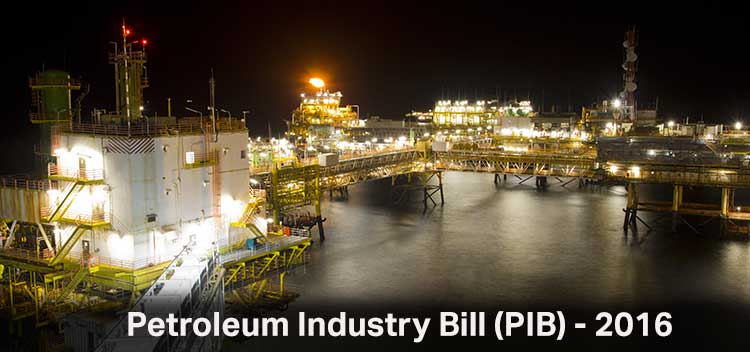The Petroleum Industry bill(P.I.B) has been under legislative scrutiny for almost a decade.Originally commissioned by ex- President Olusegun Obasanjo in 2007.The PIB Working committee was given a mandate to review Nigeria’s Oil and Gas Industry and offer recommendations on how it can be more competitive and better managed.
The PIB Objectively sough to :
- Encourage increased investment in Nigeria’s oil and gas industry by creating a more conducive environment for investors.
- Reposition the Nigerian Petroleum Industry to be more efficient and credit worthy by breaking up the industry into independent new profitable entities.
- Create Effective Regulatory Agencies
- Promote the use of local content in the oil and gas industry.
- Safeguard Health, Safety and Environment in Petroleum Operations.
Some of the problems the PIB was commissioned to eliminate include ineptitude and gross inefficiency in the Nigerian National Petroleum Corporation (N.N.P.C) as a result of which it was unable to meet its obligatory cash calls.
The PIB has been in the National Assembly from 2008 till date.Due to geo-political sentiments, the 6th and 7th National Assembly failed to pass the PIB.Since its first presentation in 2008, the PIB has undergone several modifications due to conflicting interests among multinationals, indigenous oil companies, civil society groups, politicians and government, with every group lobbying to have their interest covered.
The main bone of contention is the extra largess provided for the oil producing communities by the PIB.Lawmakers from non-oil producing states rejected the proposal outrightly arguing that any compensation should be shared among all the states.Passing the PIB would directly benefit the Niger Delta Communities through the Petroleum Host Communities Fund which is focused on providing the economic and social infrastructure the oil producing communities deserve.
The biggest losers for non passage is the NNPC (which is fraught with corruption and mismanagement and is unable to stay afloat), the Niger Delta Communities whose lands have been degraded by oil pollution with accompanying loss of livelihood and the nation which continues to loose billions of dollars from an ineffective system.
The economic implications of delaying the PIB is huge.Several Projects planned by multinational oil companies running into billions of dollars are being held back pending the outcome of the PIB
The Petroleum Industry Bill in 2016
Due to unsuccessful attempts in passing the PIB,Dr Ibe Kachikwu, the Group Managing Director of the Nigerian National Petroleum Corporation proposed that the PIB be split into parts to facilitate passage through the National Assembly.
The NNPC Boss is quoted below ;
“As long as we continue to want to pass a holistic PIB, it’s going to be a major challenge”.
Once you begin to break it up into critical aspects, you begin to make a faster run to passing the PIB,”.

